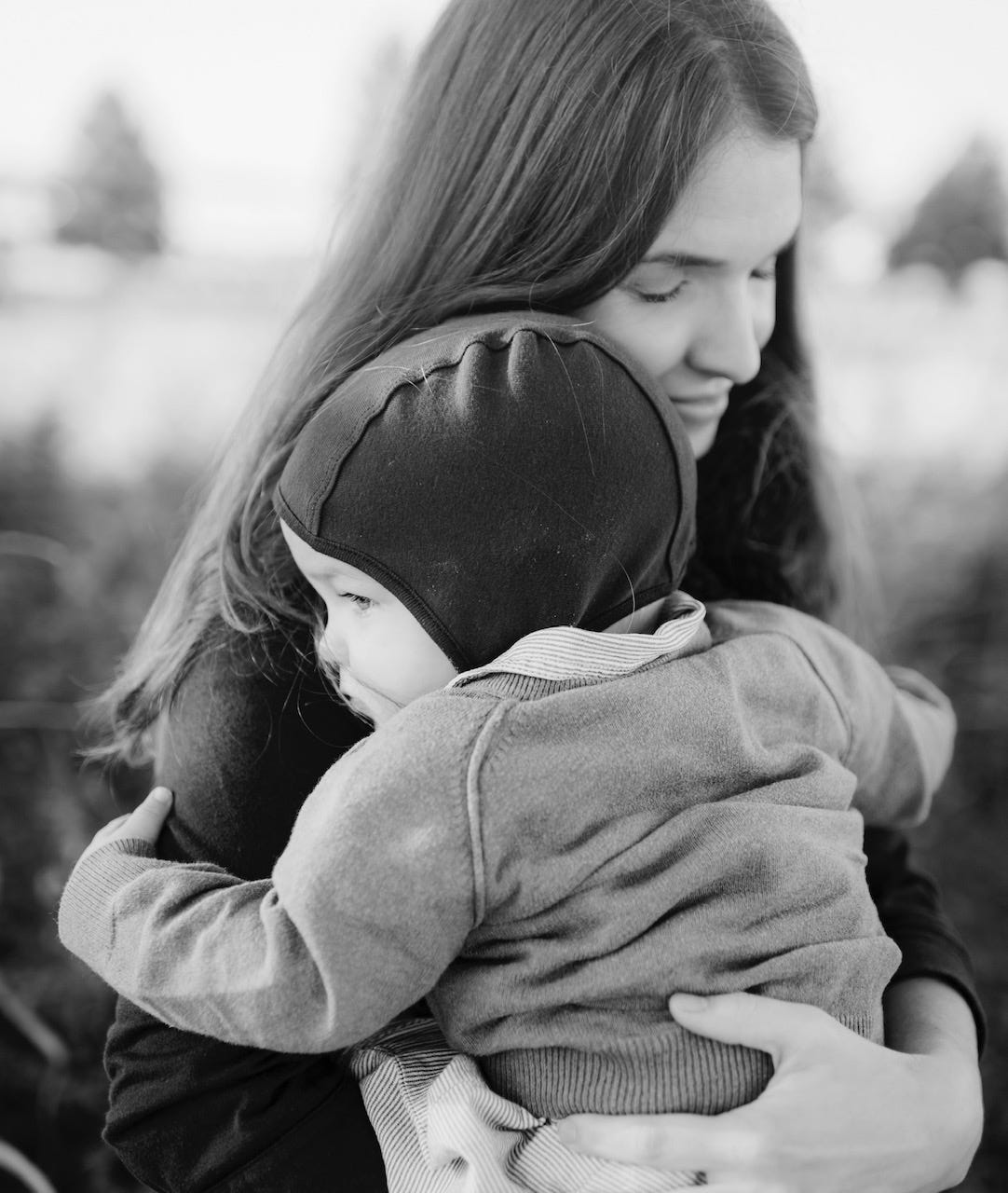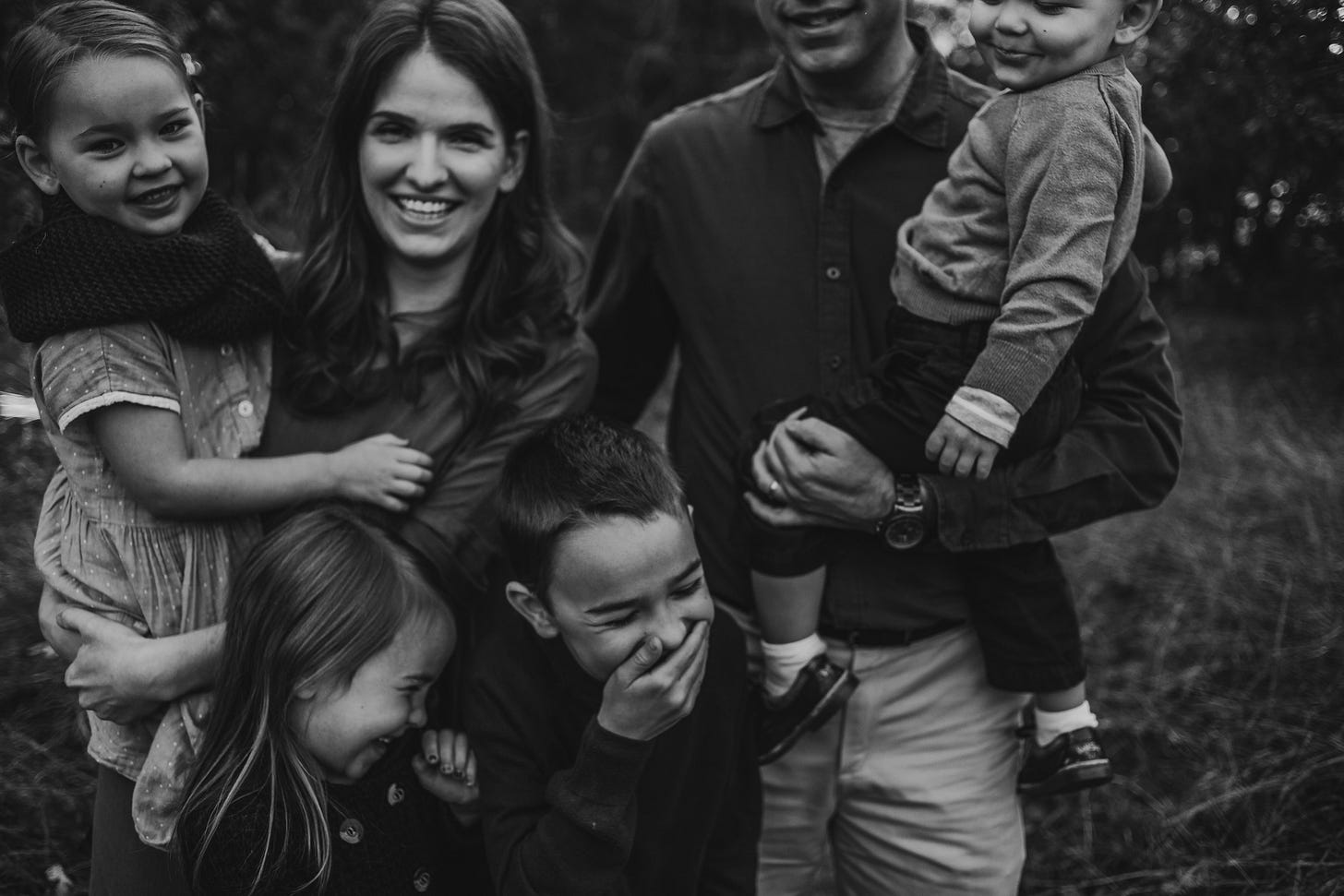The world cannot fathom strength proceeding from weakness, gain proceeding from loss, or power from meekness. Christians apprehend these truths very slowly, if at all, for we are strongly influenced by secular thinking.
-Elisabeth Elliot
In a recent piece entitled It’s embarrassing to be a stay-at-home mom, the author claims that it is fundamentally a “lack of status” for mothers that is driving a world-wide collapse of birth rates. Jim Dalrymple, too, argues that “we have to find a way to make kinkeepers and parents high-status roles.” The solution for falling fertility put forth in the former article is this: government policy which “will significantly increase birth rates.”
While I empathize with the goal of increasing birthrates, I hesitate to concur with the suggestion that motherhood must become “high-status” in order to reverse the birth dearth.
I make no claim to have solutions for falling birthrates, but I have serious doubts that any government policy could actually significantly increase birth rates, not to mention the unintended consequences of such policies.
I am simply approaching this as a Christian, and ask: what does Christ say about status? Should we seek high-status, ever? If motherhood is the denial of the self, and status is the elevation of the self, can motherhood–within our society’s current value-system–ever be high status?
As a human, I understand the appeal of status (don’t we all?). Who wouldn’t love prestige, respect, and deference from one’s peers?
As a Christian, however, I wonder–are we even asking the right questions? Should we be seeking the approval of society (status) for what was once a near-universal vocation?
As usual, Christ turns everything on its head. When his disciples approach him and ask, Who is the greatest in the kingdom of heaven? he replies: those who care nothing for status–the men and women who have become humble as little children–these are the greatest in the kingdom of heaven.1
Status says “look at me.” Christ asks us to leave status behind.
Status–by its very nature–reinforces the subtle sin of pride because it pits us against each other. Someone can only be “high-status” if others are deemed “low-status.”
Status is embedded in our human nature. Christ calls us to a more divine way.
As Christians, should we be interested in “high-status” awarded from a society that demeans and mocks all that we hold dear? Why would I outsource my idea of what is valuable to the whims of our Godless, unstable society? When status is conferred by society, it can also easily be revoked. Fortunes can be quickly lost. Fame can sour and reverse overnight. The prestige of a university or other institution is neither permanent nor guaranteed. To hope for status from the world is to trust in vanity.
It is a sick society that misunderstands the value of the home. It is a sick society that values material goods over children.
-Cindy Rollins, Beyond Mere Motherhood

Part of the nobility of motherhood is that it is hidden, quiet, unheralded work. New motherhood is inherently very hidden and obscured from public view. My sister had a baby last year, and I noticed as I went to visit her that not only was she at home, but she was in the most private room of her home–her bedroom–resting, sleeping, nursing and caring for her sweet, slumbering baby boy. Ronald Rolheiser states simply in his beautiful book Domestic Monastery, “The mother who stays home with small children experiences a very real withdrawal from the world.”2
In fact, in a certain mysterious, paradoxical way, the fact that motherhood is not high-status lends it an air of untouchable nobility and helps the vocation of motherhood transcend the money, fame, and status-driven careers of our modern society.
When I think about the work my grandmothers and my own mother did for their families and their children—how would my view of them change if I knew they were doing it simply (or partly) because it was “high-status?”
No— the beauty of motherhood is in the seemingly “low-status” of it—and how mothering with love transforms it into something untouchable by those who are only after glory and accolades.
I am reminded of Charlotte’s friendship with Wilbur. In saving the pig’s life, Charlotte, the unlikely heroine, wasn’t seeking recognition, fame or wealth. She wasn’t striving for personal glory or success. She was simply being a friend. The scene when she dies alone is one of the most poignant in all of literature:
She never moved again. Next day, as the Ferris wheel was being taken apart and the race horses were being loaded into vans and the entertainers were packing up their belongings and driving away in their trailers, Charlotte died. The Fair Grounds were soon deserted. The sheds and buildings were empty and forlorn. The infield was littered with bottles and trash. Nobody, of the hundreds of people that had visited the Fair, knew that a grey spider had played the most important part of all. No one was with her when she died.3
Nobody knew that she had played the most important part of all.
What if Charlotte had demanded payment or recognition for her sacrifices that she gave to Wilbur as his friend? It is precisely because Charlotte is not status-seeking and self-absorbed that she has become one of the most beloved characters in all of children’s literature.
If our society assigns a low-status to motherhood, the problem isn’t motherhood, it is the value-system of the sick society we live in. Our society values wealth, fame, prestige, power, autonomy, and independence. Motherhood (especially young motherhood) is in direct opposition to all of these.
If we, as mothers, feel despised and rejected, we should remember that we are in the greatest company of all.
When we look at motherhood the same way we tend to look at everything else–transactional, measurable, with a what’s-in-it-for-me mindset, it is a terribly foolish investment to become a mother.
Do I crave high-status? Is it appealing to me? Is it appealing to all of us? Maybe.
But perhaps we should be less concerned with status. Perhaps—if we can truly and wholly become like little children—we can finally stop seeking status, and start seeking the things that matter both now and into eternity. Love. Friendship. Motherhood. The truly permanent things.
Matthew 18:1-4
Ronald Rolheiser, Domestic Monastery (Paraclete Press, 2019).
E. B. White, Charlotte’s Web (HarperCollins, 1952), 171.






That last paragraph! Love it, Shannon.
Christ's ways are always going to go against the world and our own flesh. It doesn't—and will never—make sense apart from life in Him.
Psalm 116:6: “The Lord preserveth the simple: I was brought low, and he helped me.”